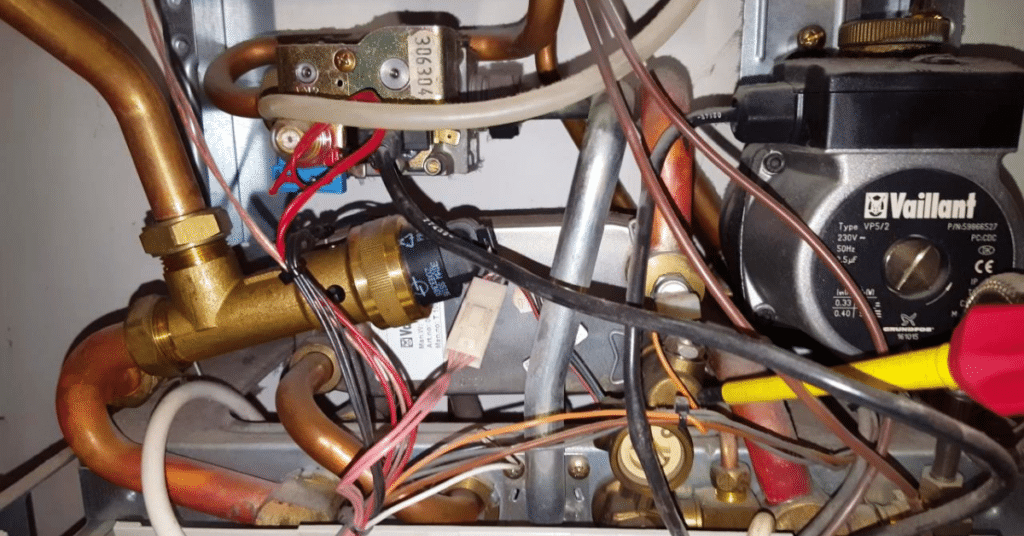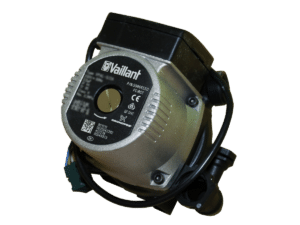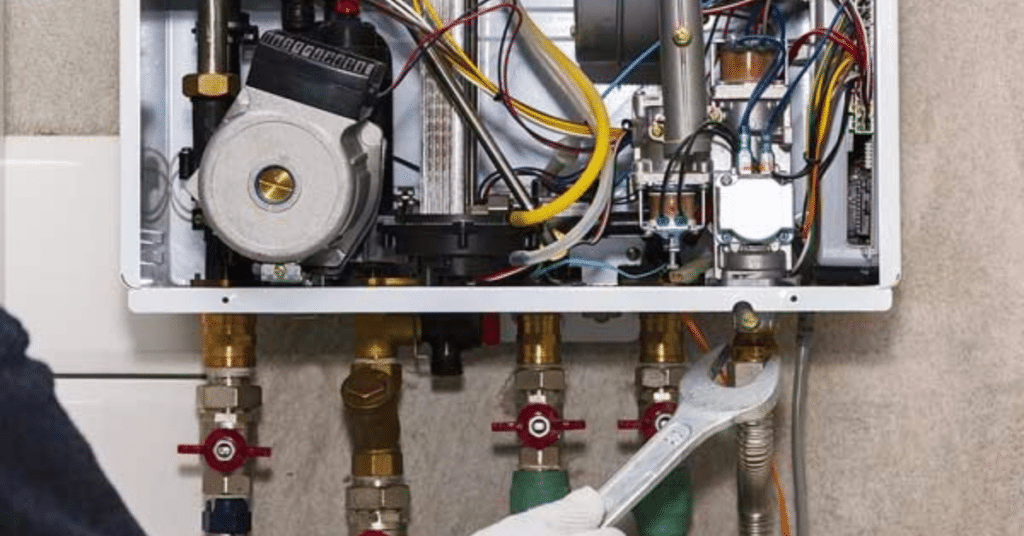Boiler Pump Replacement Cost | Complete Guide
Have you noticed any strange noises or water leaking from your boiler? If so, this may be caused by a faulty boiler pump. To resolve any issues, you should consider replacing your boiler pump with a new model to prevent any future problems.
Before investing in a new boiler pump, take a look at the following guide, which covers the ins and outs of boiler pump replacement, including the costs, the different types and the signs to look out for when replacing a boiler pump.

What Is A Boiler Pump?
 A boiler pump or central heating pump works by circulating water from the boiler through the pipes to the radiators and back again. They are typically located next to the boiler, and the main purpose of a pump is to speed up the process of water circulation.
A boiler pump or central heating pump works by circulating water from the boiler through the pipes to the radiators and back again. They are typically located next to the boiler, and the main purpose of a pump is to speed up the process of water circulation.
Central heating pumps typically feature a water flow inlet which allows water in for pressurisation, and an outlet where the water exits the pump and circulates around the home. This process occurs automatically as soon as the heating is switched on.
Types Of Boiler Pumps
Before replacing a boiler pump, it is important that you understand the different types of boiler pumps. Here are three of the most common central heating pumps:
Single Speed Boiler Pump
Single speed boiler pumps are typically found alongside older boilers, and are not as efficient as other central heating pumps. However, they are still suitable for smaller homes with less than ten radiators.
Multiple Speed Boiler Pump
Multiple speed central heating pumps typically have three different speed settings that can be adjusted depending on the type of heating system you have.
Variable Speed Boiler Pump
Boiler pumps with variable speed settings will automatically adjust the speed when the heating is switched on. This type of pump is not suitable for radiators with thermostatic radiator valves, as variable speeds can cause damage to the boiler.
Combination Boiler Pump
Combination central heating pumps give you the option of both fixed and variable speed settings. For the fixed setting, you can choose between three different speeds, while the variable speed will be adjusted automatically.
How Much Does A Boiler Pump Cost In The UK?
Boiler pump replacement costs vary significantly, depending on the type of central heating system and boiler pump you have. The installation cost will also depend on the location of your property, and the level of access to the boiler pump.
However, in the UK a new boiler pump replacement would cost anywhere between £120-350 on average.
How much is a new boiler pump without the labor?
On average, you should expect to pay anywhere from £80 to £300 for a new central heating pump, without the installation costs.
How Much Do Heating Engineers Charge for the labor?

A boiler pump must be replaced by a qualified heating engineer. This will ensure that it is an authorised and safe installation.
Boiler pumps typically take around 30 to 60 minutes to replace, therefore, as heating engineers typically charge £30 to £50 per hour it will usually be between these two figures. However, a more complicated boiler pump replacement may require a daily rate between £220 to £300.
1. Switching off the electricity supply
Before removing the boiler pump, the heating engineer will first switch off the electrical supply from the fuse box or consumer unit.
2. Locating and checking the boiler pump
Before removing the boiler pump, the heating engineer will first switch off the electrical supply from the fuse box or consumer unit.
3. Shutting off the isolating valves
Once the heating engineer has confirmed that a replacement is necessary, they will then switch off the isolating valves, which will shut off the water supply. If there are no valves, they will need to drain the entire system.
4. Waterproofing
After the water is shut off, they will then waterproof the area around the boiler by placing a bucket underneath the pump to prevent spillages or water damage.
5. Removing the pump
Once the area is safe, they will then start to loosen the union nuts, which secure the pump in place. This will enable them to remove the broken pump carefully.
6. Replacing the pump
When the old pump is removed and out of the way, the heating engineer will then secure the new central heating pump making sure it is snug. They will also fit new washers in the union nuts to provide a watertight seal.
7. Drying and connecting the pump
Before switching the electricity back on, the heating engineer will dry the pump thoroughly to prevent accidents. They will then reconnect any wiring in its original state.
8. Testing and bleeding the pump
Finally, the pump can be switched on and tested to ensure there are no issues. At this point, they will check for any leaks or noises. Once this has been checked over, they will then bleed the pump and radiators to remove trapped air.
When To Replace A Boiler Pump

If you are unsure whether a boiler pump replacement is necessary, here are some of the most common signs to look out for:
Leaking
If you notice a leak coming from your boiler pump, this may be a clear sign that a replacement is needed. It may just be that the pump is not fastened correctly, so it may need tightening. However, if this is not the issue, then more than likely, there is a problem with the seal. The seal can be replaced, although it is cheaper to replace the boiler pump altogether.
Lack of Water Circulation
Water circulation is vital for a central heating pump to work. However, if the water stops circulating, this could be an issue with the motor if the pump feels hot to the touch. This can be fixed, however, if the problem reoccurs regularly, then the best solution is to replace the boiler pump.
The Pump Won’t Turn Off
If your boiler pump does not turn off, then this may be caused by a number of issues, including a faulty PCB (printed circuit board or a valve that is sticking. A heating engineer will be able to determine whether a repair or replacement is required. However, it is usually more cost-effective to replace the pump if it is more than five years old.
How To Hire A Boiler Pump Replacement Expert
A boiler pump replacement is a fairly quick job, although it can be complicated. Therefore, it is important that you hire a qualified heating engineer who has previous experience of replacing boiler pumps.
If you are experiencing an issue with your boiler pump, get in touch with us at SP Boiler Services today to schedule a service with one of our team. Once you are booked in, one of our accredited heating engineers will visit your home and determine whether a simple repair or boiler pump replacement is required.
 by Proud London Home Owners
by Proud London Home Owners





